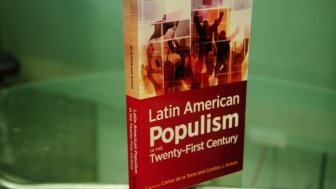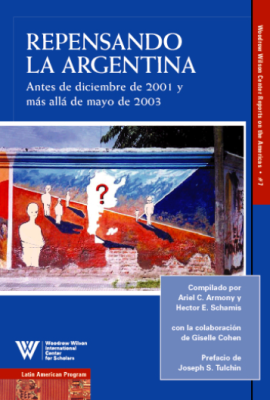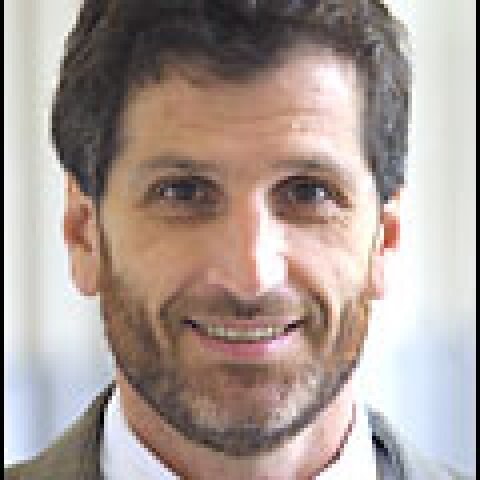Hector Schamis
Former Fellow
Professional Affiliation
Georgetown University
Expert Bio
After obtaining my undergraduate degree in Sociology at the University of Buenos Aires, I pursued doctoral studies in Political Science at Columbia University. Since obtaining my Ph.D. degree I have been an Assistant Professor of Government at Cornell University. Previously, I had appointments at the University of Pennsylvania, Brown University, and the Kellogg Institute of the University of Notre Dame in the U.S. I also was a visiting scholar at Cambridge University in England, at CIEPLAN (Corporation for Latin American Economic Research) in Santiago, Chile, and at the Central European University in Budapest, Hungary. In addition, I have also participated in research projects with the United Nations Economic Commission for Latin America (UN-ECLA) and with the Interamerican Development Bank (IDB), and I have been a consultant for the Ministry of Social Development of Argentina.
Education
Ph.D. in Political Science, Columbia University
Expertise
Comparative political economy, the politics of market reform, comparative democratization; Latin America and East-Central Europe
Wilson Center Project
"Democratic Capitalism and the State in Eastern Europe and Latin America"
Project Summary
This project attempts to explain why marketization has reinforced democratization in certain countries, while leading to patterns of destructuration that have made democracy unstable in others. The key research question is not whether economic reform and democratization are, per se, mutually reinforcing or mutually destabilizing, as most of the literature on the "dual transitions" in the East and the South has debated for a decade. Rather, this project expects to explore nuanced scenarios across both regions, from those where simultaneous political and economic reforms have created the conditions for robust democracy and robust capitalism to emerge, to those where the opening of the polity and the deregulation of the economy have, instead, led to patterns of political fragmentation under which democracy became unsustainable and capitalism substandard. In short, the key question is why, while some reform strategies have been conducive to contexts of high stateness, other trajectories of change have, in contrast, produced scenarios of virtual statelessness.
Major Publications
- "Argentina: Crisis and Democratic Consolidation." Journal of Democracy, 13, 2; April 2002.
- Re-Forming the State: The Politics of Privatization in Latin America and Europe. Ann Arbor: University of Michigan Press, 2002.
- "Distributional Coalitions and the Politics of Economic Reform in Latin America." World Politics, 50, 2, January 1999.
Insight & Analysis by Hector Schamis
- Past event
- Democracy
Book Launch: The Resilience of the Latin American Right

- Past event
- Democracy
Latin American Populism in the Twenty-First Century: Update Venezuela

- Publication
- Democracy
Repensando la Argentina: Antes de diciembre de 2001 y más allá de mayo de 2003 (No. 7)
- By
- Ariel Armony,
- Hector Schamis,
- and Giselle Cohen

